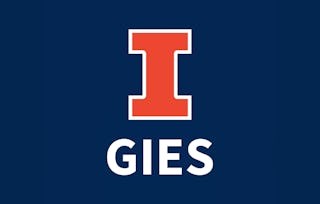In this course, you will learn about the role of operations and how they are connected to other business functions in manufacturing and service-focused organizations. You will learn and practice the use of decision-making frameworks and techniques applicable at all levels, from management-level strategic decisions such as connecting process to the needs of various customer segments, to front-line tactical decisions such as choosing between ordering larger quantities vs. ordering more frequently.

Operations Management: Organization and Analysis
6 days left! Gain next-level skills with Coursera Plus for $199 (regularly $399). Save now.

Operations Management: Organization and Analysis
This course is part of Value Chain Management Specialization


Instructors: Gopesh Anand
62,750 already enrolled
Included with
(1,260 reviews)
What you'll learn
Understand the role of operations management.
Relate underlying principles to operations management frameworks and techniques.
Synthesize information to make operations decisions in important areas.
Evaluate processes on different dimensions.
Skills you'll gain
Details to know

Add to your LinkedIn profile
36 assignments
See how employees at top companies are mastering in-demand skills

Build your subject-matter expertise
- Learn new concepts from industry experts
- Gain a foundational understanding of a subject or tool
- Develop job-relevant skills with hands-on projects
- Earn a shareable career certificate

There are 4 modules in this course
In this first module, you will be introduced to the instructors and the course. Next, you will learn about the significance of operations management, and how to formulate and implement an operations strategy that is aligned with the business strategy and with market requirements.
What's included
13 videos7 readings11 assignments
In this module, you will learn about types of process arrangements and the implications of adopting each one. You will learn to analyze the performance of processes and of the activities within the processes, and to recognize the impacts of variability on processes.
What's included
9 videos2 readings9 assignments
In this module, we will learn about the importance of inventory management in operations settings. Inventories entail several costs such as holding and ordering costs. These costs depend on key decisions such as order quantity and reorder point. We will learn how the different types of costs depend on inventory decisions. We will also discuss the trade-offs associated with inventory decisions and how to make optimal decisions related to inventory management. This module is focused on simple inventory scenarios where demand is fixed and known. The learnings from this module are important because it provides key basics of inventory management which are important in learning and mastering more complex decision scenarios
What's included
8 videos2 readings9 assignments
In this module, we extend the learnings from the previous module to more complex scenarios of inventory management, namely, when demand is uncertain and cannot be predicted with certainty. First, we learn how to measure uncertainty in demand using demand distributions – particularly the Normal distribution, which is the more common demand distribution used in practice. Second, we will learn about the decision tradeoffs in managing inventory with uncertainty, namely, between service levels and costs of inventory. The key decisions related to managing inventory with demand uncertainty are order quantity, reorder point, safety or buffer stock levels, and frequency of inventory review and ordering. Upon completion of this module, we will gain knowledge and expertise in making these decisions optimally using different inventory policies such as continuous review policy and periodic review policy. This module is important for managing inventories in most operations settings in an efficient and effective manner.
What's included
8 videos4 readings7 assignments
Earn a career certificate
Add this credential to your LinkedIn profile, resume, or CV. Share it on social media and in your performance review.
Build toward a degree
This course is part of the following degree program(s) offered by University of Illinois Urbana-Champaign. If you are admitted and enroll, your completed coursework may count toward your degree learning and your progress can transfer with you.¹
Instructors

Offered by
Explore more from Business Strategy
 Status: Free Trial
Status: Free TrialUniversity of Illinois Urbana-Champaign
 Status: Free Trial
Status: Free TrialUniversity of Pennsylvania
 Status: Preview
Status: PreviewIESE Business School
 Status: Preview
Status: Preview
Why people choose Coursera for their career




Learner reviews
1,260 reviews
- 5 stars
77.22%
- 4 stars
16.42%
- 3 stars
3.33%
- 2 stars
1.19%
- 1 star
1.82%
Showing 3 of 1260
Reviewed on Feb 22, 2021
it was very informative & well presented. Thank you Professor Udatta for your time & easy to understand explanations of the subject matter at hand.
Reviewed on Apr 29, 2020
As of i like finance and HR so just thought to try this operations. Really a good and interesting course and give a lot of information with examples so its effective and helpful for our future also .
Reviewed on Nov 21, 2021
This course is really informative and helps me a lot when I'm learning about Supply Chain. It also helps me to enhance my knowledge to learn better at my university.

Open new doors with Coursera Plus
Unlimited access to 10,000+ world-class courses, hands-on projects, and job-ready certificate programs - all included in your subscription
Advance your career with an online degree
Earn a degree from world-class universities - 100% online
Join over 3,400 global companies that choose Coursera for Business
Upskill your employees to excel in the digital economy
Frequently asked questions
Once you enroll for a Certificate, you’ll have access to all videos, quizzes, and programming assignments (if applicable). If you choose to explore the course without purchasing, you may not be able to access certain assignments.
You will be eligible for a full refund until 2 weeks after your payment date. You cannot receive a refund once you’ve earned a Course Certificate, even if you complete the course within the 2-week refund period.
Yes! Coursera provides financial aid to learners who would like to complete a course but cannot afford the course fee. To apply for aid, select "Learn more and apply" in the Financial Aid section below the "Enroll" button. You'll be prompted to complete a simple application; no other paperwork is required.
More questions
Financial aid available,

